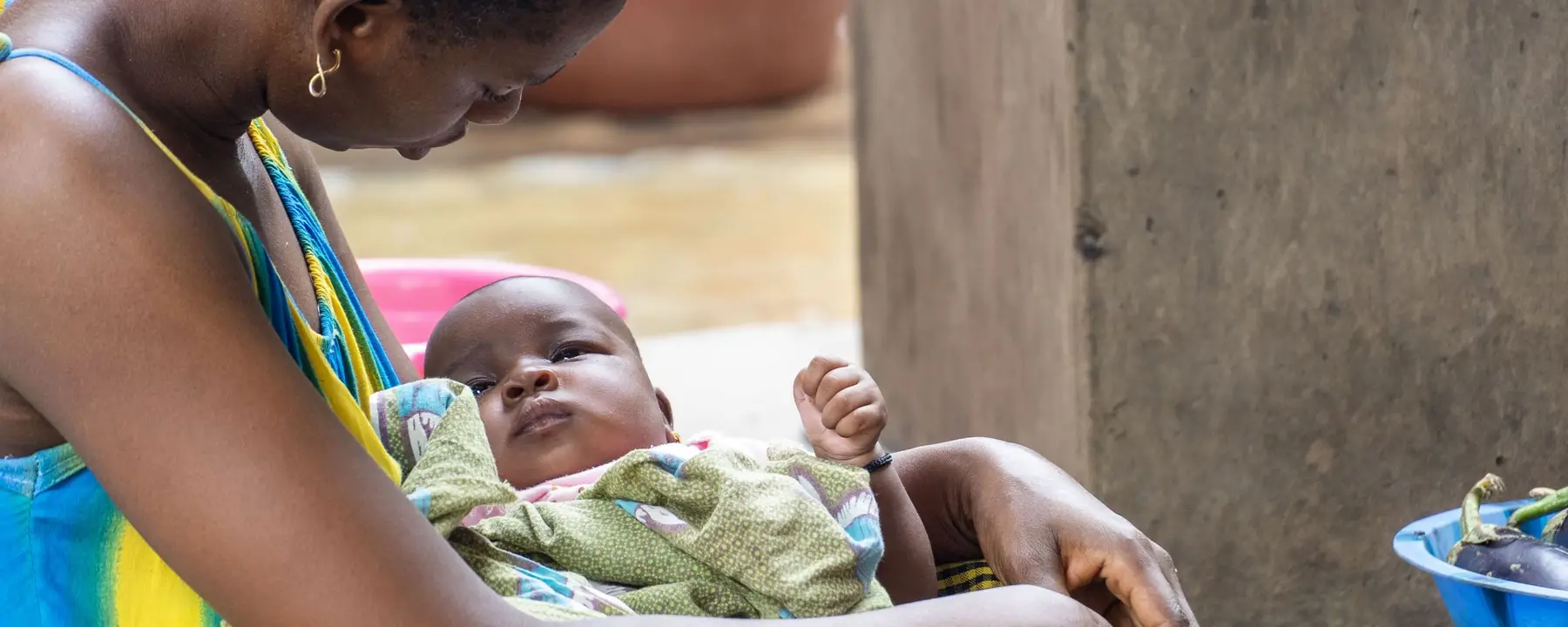Objective
Assess whether and how maternal mortality, newborn outcomes, and child malaria cases are associated with extreme temperature and rainfall in the Democratic Republic of the Congo (DRC) and Senegal.
Approach
Analyze how high temperatures, anomalous extreme temperatures, precipitation, and anomalous extreme precipitation affect human health, measured by stillbirths, neonatal deaths, maternal mortality, and malaria cases in children.
Impact
Inform medium-term climate adaption policy response and program development in low- and middle-income countries to reduce the harms of heat exposure and improve health outcomes for women, babies, and children.
Climate change is resulting in rising temperatures and unpredictable rainfall patterns across the planet, with disproportionate health consequences for poor and marginalized populations. Research indicates that pregnant women, developing fetuses, and newborn babies are particularly vulnerable to heat stress. More evidence is needed in low- and middle-income countries, particularly in tropical areas.
RTI research focuses on the DRC and Senegal
We embarked on an independently funded study in December 2023 to analyze the impact of very high temperatures and heavy rainfall on maternal and neonatal mortality in the DRC and Senegal and on malaria cases in the DRC. The findings broaden our understanding of the direct consequences of environmental temperature and rainfall on population health indicators, while providing practical lessons for incorporating climate data into maternal health and malaria programs.
Applying the findings to improve maternal and neonatal health
To support continued reduction of preventable maternal and newborn deaths, we are collaborating with government partners in Senegal and the DRC to conduct research and consider implications and applications. We are working to identify evidence-based approaches and interventions that can reduce the health harms of exposure to extreme weather to inform future policies and projects.
Project methodology
A literature review helped us to contextualize our ambitions and research questions. We then finalized our analytical approach, including conversations with Ministry colleagues in both Senegal and the DRC to understand their routinely collected national health data.
We obtained climate data from publicly available remote sensing and imaging sources, including NOAA’s Global Precipitation Climatology Centre and MODIS, to determine monthly average temperature and precipitation by zone or district, calculating the months with extreme heat and extreme precipitation as compared to historical norms. This was matched with health data from health zones in the DRC and health districts in Senegal.
Using a spatial-temporal model developed by RTI, we assessed the relationships between temperature, precipitation, maternal mortality, neonatal mortality, stillbirth, and child malaria cases in the targeted geographies.
Results coming soon
We look forward to presenting results at the American Society of Tropical Medicine and Hygiene meeting (New Orleans, USA, November 13-17, 2024) and the Health Systems Global conference (Nagasaki, Japan, November 18-22, 2024). RTI will make public the findings of this study via scientific journal publications expected in 2025.
- National Institute for Public Health, DRC
- Ministry of Health and Social Action, Senegal

